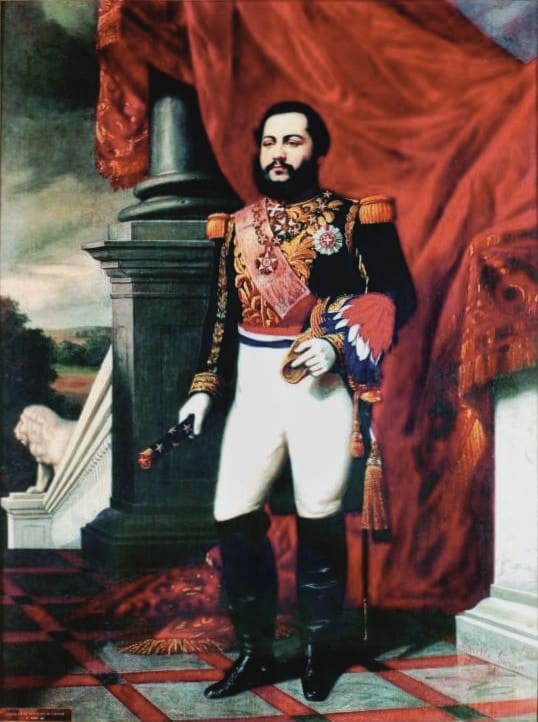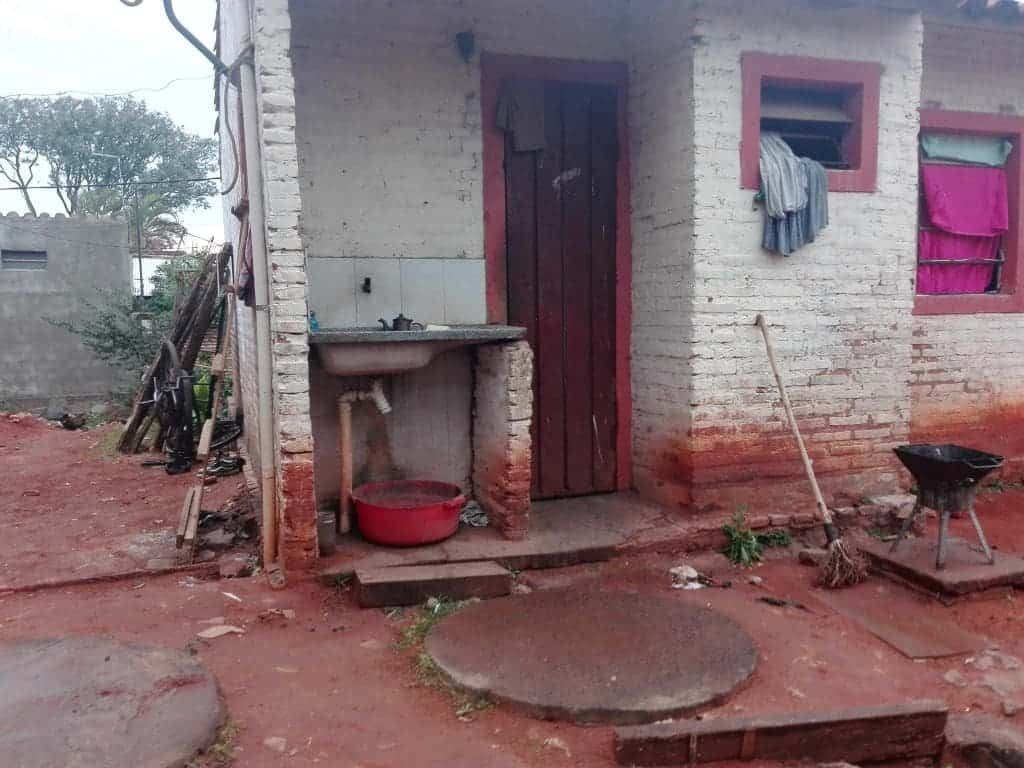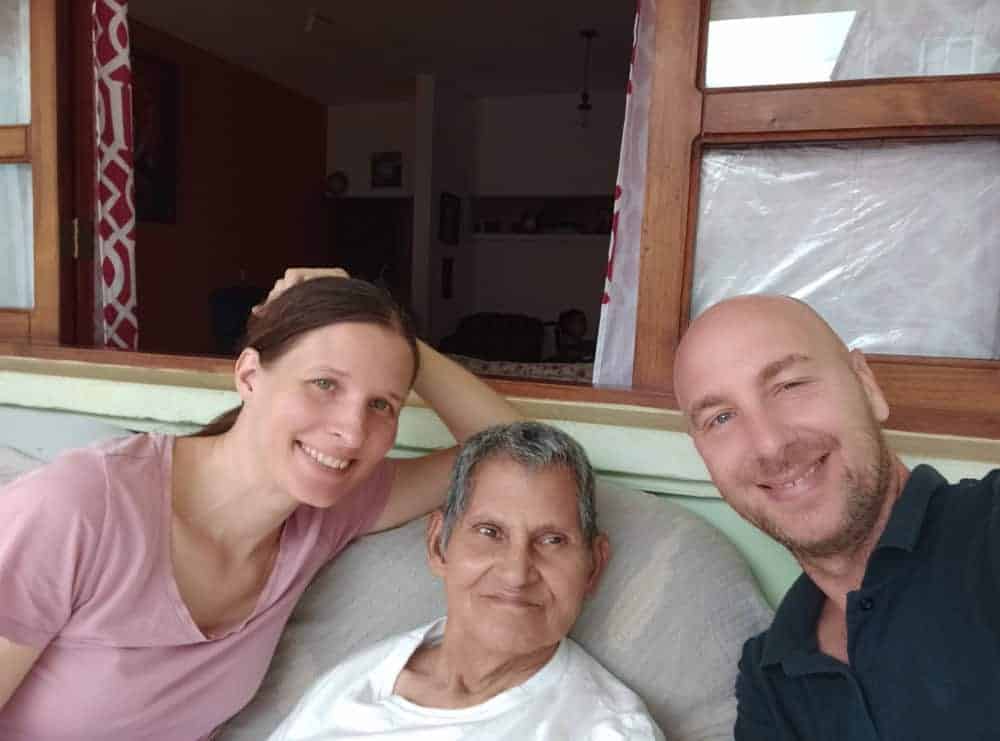“We must have one mind and one heart on our way to God. On our pilgrimage, we walk together with Christ, who is our constant companion, our path
This is the introductory sentence of St. Augustine in the book ‘Rules”, which he left after his death to his successors – dedicated brothers in his community.

There are no monastic communities of Augustinians in Slovenia. However, his way of life, wisdom, philosophy and doctrine live everywhere, wherever there is a working Catholic Church. Namely, he is one of the greatest minds in history, and is also respected and recognized outside the Catholic Church.
Fight between good and evil
Augustine didn’t believe in Catholic Church for a long time although his mother Monika was a great believer and a devoted Catholic.
He was born in 354 in Thagaste, North Africa. For a long time he lived a bohemian life, he didn’t know how to (or couldn’t) resist the passion and his life was dictated by dependencies. When he was young, he followed Manichaeism – a philosophy that he believed in and followed until he was 33.
To put it simply, the Manichaeans believed there are two poles in spirituality, the ‘Divine’ and the ‘Evil’, which constantly fight each other and have complete control over a human and his actions.
When a person does something nice and good, then the divine power has won. However, when a person subjects to temptation and sins, the evil has beaten the good, and the person has no influence over that fact.
Free will
After Augustine converted to Christian belief, he became aware of an important realization that has a lot to do with man’s will. Free will!

He realized that he could be tossed around by a storm of various feelings, passions, and inclinations, but only until he takes control over his actions and realizes he has free will and can choose, what inner force to follow – good or evil.
Dedicated to God and the poor
In 395, Augustine became a bishop in Hipon where he spent the rest of his life serving God.
He established a monastic community where he lived for the rest of his life with other brothers, in the service of God and other people. Especially the poor.
He was known for his charity and renouncement in favor of those left out of the society.
The way to heaven
After his death (in 430), the community lived on and expanded. Augustine’s spirit and his ideas are preserved and spread by the Augustinians.
The foundation and character of the Augustinians is living in the community. Together the brothers build the path, that leads to God and service to others,
They live in humility and indigence, giving up all property – both material and spiritual – and offer it at the disposal of the community, for the benefit of all.
Augustinians believe:
“We are all beggars before God. We use the good of this world only as a tool on our path to heaven.”
Work at school and in the parish
Today, the Augustinians are widespread around the world, especially in third world countries, including Paraguay.
Silva and I have been spending our third week with these missionaries, with nice, humble and devoted people, who have committed themselves to serving God and the community in which they live.
As in other Augustinian communities, also the mission of fr. Jurandir, Silvester and Cleber is devoted to two basic activities.
They run the parish in Asuncion, the capital of the state, and at the same time the school with which they want to help poor children to get better education.
Challenges
Anyone who lives and works in Paraguay knows how many challenges this nation faces. Drugs, poor education, family disintegration, hungry children, poverty …
Good education is therefore crucial, and the Augustinians are well aware of that fact. They are needed in Paraguay!
History
Otherwise, Paraguay is a nation with a stormy past. The Europeans first came to today’s territory of Paraguay at the beginning of the 16th century but Asunción (in the translation meaning “assumption”) was first populated in 1537 when it became the center of the Spanish colony. Before that the indigenous Guarani Indians inhabited the area.
Almost 300 years later, Paraguay gained independence from Spain, and on May 14, 1811, an independent state was declared.
Dictatorship and tyranny
In the past, the Paraguayan people were always under the leadership of dictators and tyrants. Each of them strongly influenced the development or decline of the state, depending on his wisdom and discernment. But the most fateful role was played by the leader Francisco Solano Lopez.

After he succeeded his father, Paraguay was led to the bloodiest and most catastrophic war of the 19th century that took place on the soil of South America.
In the war
Paraguay intervened in a dispute between Brazil and Uruguay, where the then president was in fear of losing his position so he asked Paraguay (which was then a rich and powerful military force) for military intervention.
Lopez was aware of Brazilian power in Uruguay. He was afraid that Brazil would later influence the internal policy of Paraguay and removed him as the president so he responded to the request, gathered the army, and headed for Uruguay.
Triple Alliance
Between Paraguay and Uruguay is Argentina that didn’t issue a permit for the military crossing of its territory to Lopez. Despite that fact, Lopez entered Argentina with his army and began seizing parts of the Argentinean territory.
At that time, the Uruguayan president ‘fell’ and was followed by another who was a political ally of Brazil. Paraguay suddenly found itself alone among the three forces and all of them (Argentina, Brazil and Uruguay) declared war to destroy Lopez and his government.
Fight to death
Just imagine – tiny Paraguay with just 500,000 inhabitants, a little less than the number of the Brazilian National Guard at the time, against three allies with a total of 11 million inhabitants.
To put it mildly, the consequences of the war were catastrophic for Paraguay. After three years of war (from 1864 to 1870), Paraguay was practically destroyed. At the end of 1868, its army counted only a few thousand soldiers.
But Lopez went all the way. He even called women and children aged only ten years to join the army. All under arms, all in the defense of their country. Fanatically they followed Lopez – a fight to death.
Paraguay was set up by women
When the three allies seized Asunción, Paraguay fell to its lowest point in its history. Hundred thousands of dead. After the war, the population decreased to half, to 220,000 people, of which only 28,000 men remained.

Today, the Paraguayans say that the country has emerged as a phoenix, from scratch, from the ashes, thanks to women. After the war, the women remained nearly alone and the gender ratio was disturbed.
But since that war, Paraguay has never recovered.
National hero
There is, however, one interesting thing. Francisco Solano Lopez in still deeply respected in Paraguay. His statue stands in the heart of Asunción.

Source: Ñanduti
This paranoid megalomaniac, who among other things had his family members killed in fear of conspiracy against him, still lives in the hearts of people as a national hero.
Some things are just hard to understand.
But let’s leave history aside. The Paraguayan people as Silva and I see them today, are extremely humble, modest and respectful people. We’re glad God has given us the opportunity to feel their beat and share some of their reality.
Poverty
As many as 31 percent of people in the country are poor. We are surrounded by families with ten or more children who don’t have enough money for food and clothes.

Even educated people often find themselves on the edge because they can’t find a job or it’s so poorly paid that’s barely enough to survive.
Solidarity
I presented the Coronel family already in the previous article.
Helping such a family ultimately means more than just support for its four members. Anyone living a decent life can help others who need help. That’s the way it is in Paraguay. As fr. Jurandir said:
“The Paraguayan people have it in their blood to help other people if only they can. Everybody helps everyone. That’s something that always fascinates me.”
History has taught them well!



